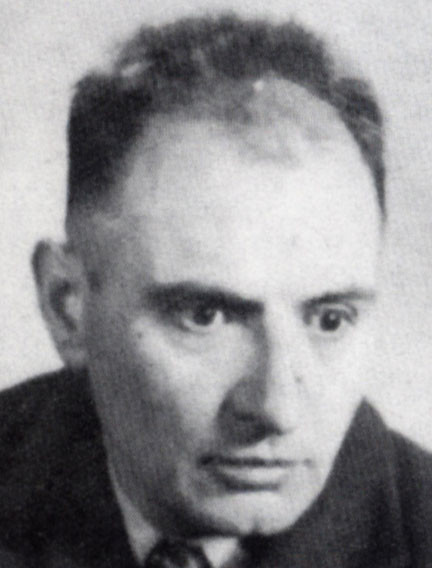Despite being a small country which went through a series of tests, Bulgaria is a land of great minds in world science. Today we proudly discover names of our compatriots mentioned only in small circles, although their contribution has long been recognized in world science. Bulgarian physicist Professor Rashko Zaykov is one of them.
During a walk in the park an Italian professor came near the pram of the future scientists, measured the skull of the baby and cried out: Madam, you are a mother of a genius! And indeed, the child had exceptional mathematical skills which took him to the elite high school of scientists such as Max Born, David Hilbert, Carl Siegel and Max von Laue.
The physicist born in the coastal city of Burgas in 1901 chose his career alone. He spent one year at the cadet school in White Church, Moravia region in Austro-Hungary, but then decided to complete his secondary and university education in his home country. He travelled in almost all European countries and learnt seven languages. He became a student in Germany to attend the lectures of renowned mathematicians and physicists. In Berlin Albert Einstein became his director of studies.
 Rashko Zaykov studied at the Berlin University and attended the lectures of Einstein on selected chapters of the theoretical physics, the Curator of the Museum of History of Physics in Bulgaria Dr. Ganka Kamisheva told Radio Bulgaria. He was the youngest listener. The world-famous scientist noticed him and they got acquainted. They contacted almost until the beginning of the Second World War. In 1925, however, he emigrated from Berlin to Turkey, because during the terrorist attack against Saint Nedelya church in Sofia he was accused that he was hiding illegal people in his house. He stayed in Istanbul for five months. This was the time when he wrote his first scientific article Application of Hilbert-Noether Theorem of Affine Theory of Gravity. And although he was still a student at that time he had the courage to send his article to Einstein who, in return, recommended that it should appear in the printed media and soon it was published in the German magazineMathematischeAnnalen in 1926. This article proved the great skills of the young Bulgarian. That is why the famous scientist Einstein recommended him to the Humboldt Foundation. Thus, Rashko Zaykov became the first Bulgarian to receive a scholarship to major in theoretical physics at Einstein’s University in Berlin.
Rashko Zaykov studied at the Berlin University and attended the lectures of Einstein on selected chapters of the theoretical physics, the Curator of the Museum of History of Physics in Bulgaria Dr. Ganka Kamisheva told Radio Bulgaria. He was the youngest listener. The world-famous scientist noticed him and they got acquainted. They contacted almost until the beginning of the Second World War. In 1925, however, he emigrated from Berlin to Turkey, because during the terrorist attack against Saint Nedelya church in Sofia he was accused that he was hiding illegal people in his house. He stayed in Istanbul for five months. This was the time when he wrote his first scientific article Application of Hilbert-Noether Theorem of Affine Theory of Gravity. And although he was still a student at that time he had the courage to send his article to Einstein who, in return, recommended that it should appear in the printed media and soon it was published in the German magazineMathematischeAnnalen in 1926. This article proved the great skills of the young Bulgarian. That is why the famous scientist Einstein recommended him to the Humboldt Foundation. Thus, Rashko Zaykov became the first Bulgarian to receive a scholarship to major in theoretical physics at Einstein’s University in Berlin.
When Rashko Zaykov returned to Berlin in 1926 he visited immediately Einstein and at his recommendation he was employed as a researcher at the Astrophysical Observatory of in Neubabelsberg. The renowned astronomer Proffesor Erwin Freundlich was a director of the so-called “Einstein Tower” and the popular expert in spectroscopy Professor Grotrian was Rashko Zaykov’s first supervisor. There, together with Einstein’s assistant Gromer, Zaykov worked on problems of the Theory of General Relativity and its application on the Quantum Theory and published a book Five-Dimensional Relativity Theory. However, his scientific achievements were not understood in Bulgaria and he lost the competition to head the Theoretical Physics Department of the Sofia University. Perhaps, Einstein was the only one who understood him, Ganka Kamisheva assumes.
The two scientists (Zaykov and Einstein) were ingenious and were deeply emotional, Ganka Kamisheva went on to say. Rashko Zaykov also played on the violin and brought to Germany his Kremona musical instrument with him. He visited Einstein’s home in the Berlin suburb Schoeneberg many times where Einstein’s stepdaughter played on the piano.
After September 9, 1944 the Bulgarian scientist returned to his motherland, but he was often interrogated by the communist authorities. Rashko Zaykov worked as statistician at the General Insurance company until 1953. Then, with the help of Professor Nikola Bonev he received a title of Professor and later was awarded a series of state orders.
English version: Kostadin Atanasov
Photos: library
On the night of 19-20 January - the celebration of Yordanovden (Epiphany) and Ivanovden (St. John's Day) in the Julian calendar - the northwestern town of Kula will host the traditional "Kapachi" ("Bathing") ritual. This is a unique event, with a..
Interest in the exhibitions and events at the Regional History Museum in Ruse on the Danube is growing. In the last 12 months, it had 95 966 visitors, which is 5 209 more people than in 2023, which is more than in the pre-pandemic years, the institution..
Aleksandar Vučić offers the opposition an advisory referendum on his presidency Serbs do not believe that the solution to the political crisis in the country could be an "advisory referendum" on confidence in the president, as requested by the..

+359 2 9336 661
